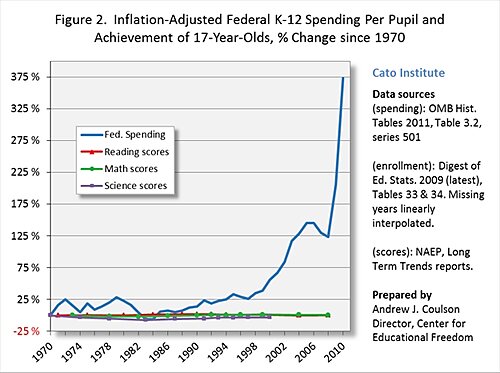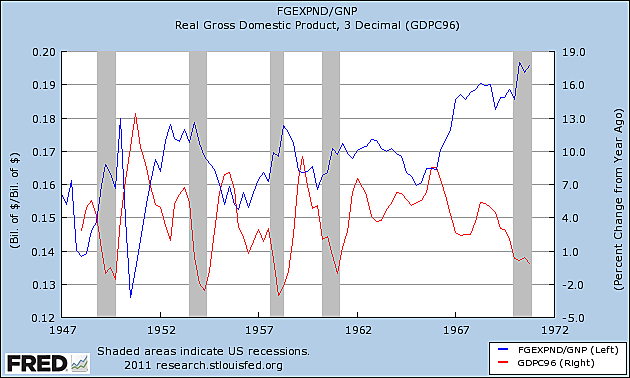Nobody wants to be the guy — especially the Congress-guy — who says that we need to cut education spending. Nobody wants to be the target of attacks from both the well-intentioned and politically opportunistic that they hate children, only care about “the rich,” or any of the other deviousness that long ago snuck up behind reasoned debate, threw a rope around its neck, and pulled it backwards.
That’s been proven again today.
If you address it honestly, it’s nearly impossible to deny that federal education meddling has been not just a failure, but a failure with all sorts of bizzaro tendencies. Just look at today’s big edu-news story: Several months ago, Education Secretary Arne Duncan warned that this year 82 percent of the nation’s public schools would be identified as failing under the No Child left Behind Act. A lot of people smelled pure politics behind the pronouncement — the administration wanted to unilaterally issue waivers from the law in exchange for states adopting POTUS-dictated policies — and today the Center on Education Policy released a report finding that only about 48 percent of schools “need improvement” under NCLB.
Wait, 48 percent? Isn’t that still really high?
It certainly seems so, but who the heck even knows? Every state sets its own standards-and-testing regime and most appear to have gamed the system wildly to stay out of trouble. So are all our schools failing? Half? And what even constitutes failing? No one knows, and few politicians appear willing to talk straight about it. (Of course, most probably have no idea what should constitute math and reading “proficiency” — the law’s goal — to begin with. Indeed, it’s an extremely subjective designation for anyone to make, though some in Washington act like they pretty much know what it is.)
Obviously, no sane individual would ever construct a system like this. But politically, all this illusion and contortion makes sense: Every politician wants to be seen as the savior of our children, but never wants the abuse that would come with creating and enforcing high standards, or being honest about progress made — or not made — under his or her watch. So we get all this sound, fury, and when you compare spending to test scores, educational nothing:
Now, you’d think just the sheer lunacy of federal education policy making would make it clear to all that Washington should get out of education. And if that didn’t do it, the abysmal track record absolutely would. But no: Today the U.S. House of Representatives — the legislative body supposedly full of angry, tea-guzzling Republicans — produced their FY 2012 appropriations bill. And by how much did they cut the U.S. Department of Education budget? 20 percent? 2 percent? No, a microscopic 0.2 percent! A $153 million quark out of a $71.3 billion whale!
While office holders are wrongly considered our leaders by some — they are, in fact, our employees — you’d hope they’d lead a bit by ignoring short-term political consequences and cutting utterly failed programs. But that would be the triumph of hope over reality; politicians are as self-interested as anyone else, and will generally do only those things that help them keep or gain votes. So what must happen is that the public gets intimately familiar with the sick reality of federal education policy and votes based on it. And that means those of us at Cato’s Center for Educational Freedom, and others who know the truth, must do a better job of getting that word out and helping education policy to finally meet reality.


